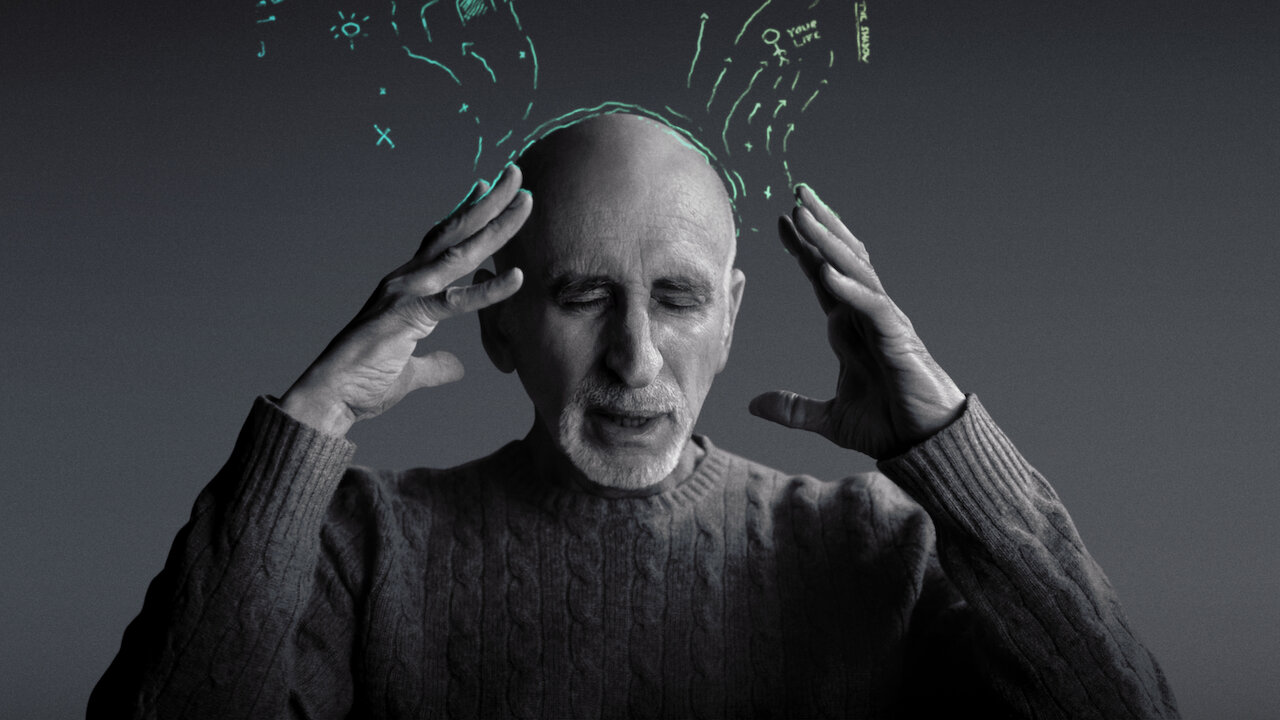I’m a writer. When my dad died, I seized on writing a eulogy as my best chance to process his loss — potentially messy and egoistic as it was, I could either make a florid spectacle of my grief or risk letting it fester inside me even worse than it was always going to. Jonah Hill is a filmmaker (among other things), and when his older brother Jordan suffered a fatal embolism in December of 2017, I suspect that Hill felt a similar instinct to express himself the best way he knew how.
Likewise, I suspect that he faced a version of the same dilemma that confronts anyone who can only access their most private feelings by airing them in public: He could only grapple with the deeply personal devastation of his brother’s death by making a movie about it, but making a movie about it would require him to stream that devastation for the entire world to see (or at least for the inordinately large percentage of it that subscribes to Netflix).
And so Hill understandably tried to find a workaround — a way to make a movie about his brother’s death without making a movie about his brother’s death. “Stutz” is that workaround, but in a way, it’s also a documentary about that workaround and the tools required to build it (the details are best left unspoiled, so let’s just say that Hill indulges in a meta element that locates his film somewhere between a self-help tape and an episode of “The Rehearsal”).
Ostensibly a lo-fi profile of the jocular, foul-mouthed psychiatrist Hill began seeing long before Jordan passed, “Stutz” presents itself as a film about Phil Stutz and his methods, both of which Hill loves with the kind of passion that someone reserves for the people and things that have saved their life; whatever else this movie becomes, it always remains a heartfelt tribute from one celebrity to his favorite shrink. Hill sets the scene by sitting across from Stutz in his L.A. office and explaining that he wants to film one of their sessions to share the doctor’s strategies with as many people as possible, but the process of doing that turns out to be more complicated than either of them could’ve imagined.
One of the first things Hill says here is that he struggles with vulnerability and opening up — that, in keeping with the Judd Apatow bromances that launched his career, he instinctively deflects from discussing his most honest feelings. He even insists that he won’t talk about his brother on camera, which at first comes off as a disingenuous strategy for teeing up the seemingly inevitable scene in which he talks about his brother. I mean, it seems a bit far-fetched that a grieving director would make a documentary about his therapist — who once lost a brother himself — without knowing that his own trauma would become part of the story. And yet, “Stutz” turns out to be a lot more honest with itself than it first appears. The movie is hardly 15 minutes old before Hill finds himself asking Stutz, “Was it a fucking terrible idea for a patient to make a movie about his therapist?”
A few moments later, the director breaks the fourth wall to answer that question himself — or maybe it would be more accurate to say that he collapses the walls in on themselves in an act of controlled demolition. However you slice it, Hill’s artifice proves intriguing even as it insists upon itself in ways that distract from Stutz’s lessons (which sound great but speed by in a blur of terminology that means almost nothing without him there to help us apply it to our own lives).
And yet, by the time it’s over, his film makes poignant sense of why he needed to lean on those contrivances in the first place. Both formally and explicitly, “Stutz” begins with the assumption that you must be vulnerable to make a movie about being vulnerable. At a certain point, however, it comes into focus that Hill had to invert that idea to get anything out of it — that he had to make a movie about being vulnerable in order to become vulnerable himself. And “Stutz,” more than anything else, is a movie about the need to be vulnerable, no matter what it takes to get there.
In other words, Hill’s film is more for him than it is for us, even if that would seem to contradict its stated purpose of spreading his therapist’s light. Stutz begins all of Hill’s sessions by (jokingly) asking him to “entertain me,” and Hill’s doc is too endowed with that needling sense of New York humor to risk taking Stutz’s command at face value. That’s not to say that “Stutz” is boring — his teachings may not translate, but the man himself has terrific screen presence, and the doctor-patient dynamic he shares with Hill is too rich and honest for us ever to feel like we’re just watching someone else do their homework — only to say that the viewer never feels like Hill’s first priority. He seems to realize that himself in real-time over the course of the film, eventually admitting to Stutz, “It doesn’t matter what people think about the movie; it just matters that we finished it together.”
It’s clear that Hill and Stutz have gone through a lot of other things together too, and anyone who’s struggled to find the right therapist is likely to be jealous of their mutual connection. Hill might focus on Stutz to deflect attention from himself, but his interest in knowing the 74-year-old man seated across from him feels completely sincere. The same is true of his interest in helping Stutz, to the point that I wonder if that palpable sense of two-way growth — of doctor and patient being in the shit together — is as crucial to Stutz’s method as “Part X,” “The Maze,” or any of the other tools that got their own code names. Hill’s film is too rooted in the here-and-now to go full biodoc, but it tells us all about Stutz’s past, with archival material illustrating stories about the psychiatrist’s childhood, his love life, his Parkinson’s Disease, and so forth. Hill openly frets about the difficulty of threading Stutz’s personal story into a film that also makes room for his professional ideas (most of which refute the neutrality of traditional psychiatric care), but he does a fine job of it.
I only wish that he had allowed Stutz to better exercise his voice and explore how he felt about this project. Does the doctor only go along with it because it’s a great advertisement for his brand? I doubt that very much. Stutz’s participation appears motivated by his very real love for Hill, but does he think making this movie will be an effective form of therapy? Is he just happy to see a patient “activating their life force?” and working their way through the Maze?
It’s impossible for viewers to know; Stutz doesn’t tell us, and Hill doesn’t ask. I think, to some degree, that’s because Hill has spent enough time with the doctor to be able to answer those questions on his own. Just as he ultimately doesn’t need to bring up his brother here, because he and Stutz have surely discussed him at length off-camera. This movie isn’t really for us, but to the extent that it is, an invitation to rubber-neck at Hill’s grief wouldn’t be to anyone’s benefit. “Stutz” doesn’t need to do that to convince us that Hill found a way to make himself vulnerable, and while the director may be wrong to assume that his film is an effective vessel for the psychiatrist’s specific tools, it’s hard to imagine a better advertisement for the overall effect they had on him.
![]()
![]()


